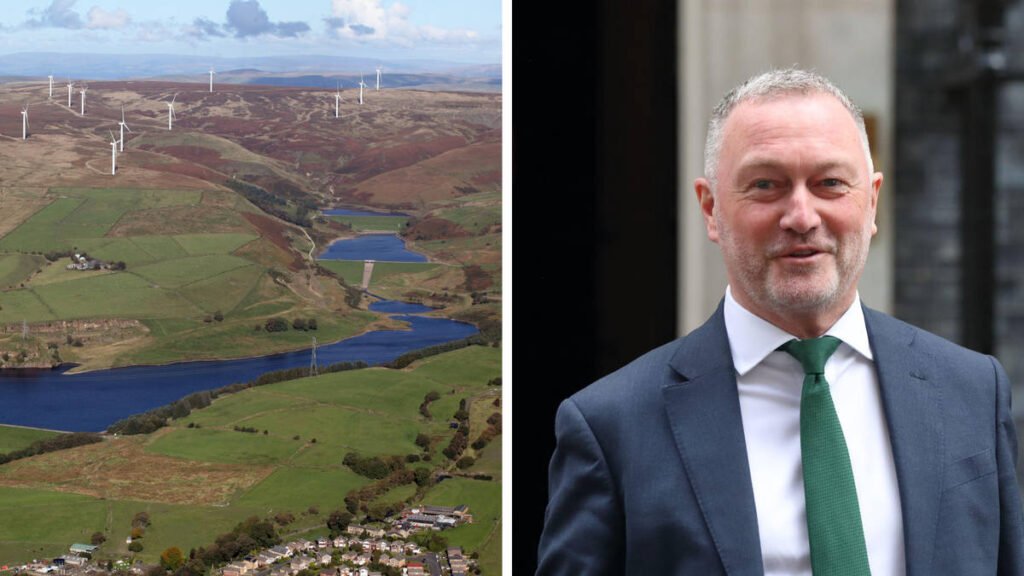25 April 2025, 08:29 | Updated: 25 April 2025, 08:37

Watch Again: Nick Ferrari is joined by Environment Secretary Steve Reed | 25/04/25
A minister has warned that the UK could run out of clean drinking water by the mid-2030s without an infrastructure overhaul.
Environment Secretary Steve Reed told LBC’s Nick Ferrari at Breakfast that authorities may have to resort to rationing water if the system isn’t revamped by then.
But he said that private water companies would invest over £100 billion over the next five years, which will be used to rebuild the country’s water infrastructure by 2030. A portion of the £104 billion sum comes from increased water bills.
Mr Reed said the increased investment would “cut sewage pollution almost in half over the next five years.
“That is a significant turnaround in a sector which has just become associated with failure and criminality,” he told Nick. “We’re going to turn it into a successful sector.

Picture:
PA
“We’re going to rebuild those sewage pipes, but we’re also going to make sure that the… clean drinking water infrastructure is there.”
The move, part of the Water (Special Measures) Act 2025, comes in the face of widespread public fury over the degraded state of the country’s rivers, lakes and coastal waters and at a lack of investment in water infrastructure, rising bills, high dividends and debt and executive pay and bonuses.
Mr Reed also revealed that bosses of water companies who cover up illegal sewage spills could now face jail time.
The Environment Department (Defra) said no prison sentences have been handed to water company executives since privatisation despite widespread illegal sewage discharges, and the tougher penalties were essential because some firms have obstructed investigations.
Mr Reed told Nick: “These sentences, which didn’t exist before now [are] going to focus the minds of the people at the top of those organisations to clean up their act.”
He said in an earlier statement that “there must be accountability” and “there will be no more hiding places” for rogue bosses.
Read more: Devon residents without water to receive £200 compensation, says MP
Read more: 2,487 water pollution incidents recorded in 2024, say campaigners

Picture:
Alamy
Meanwhile the government has also launched an Independent Water Commission, which is looking at widespread water sector reform.
Campaigners have called for wide-ranging measures, from overhauling regulators to nationalising water companies, while the Office for Environmental Protection (OEP) watchdog is investigating whether the Government and regulators failed to comply with key laws on water quality.
Defra argues that the new laws brought in to imprison water company executives will act as a powerful deterrent.
Until now, regulators have faced obstruction from companies in their efforts to gather evidence for prosecutions on illegal sewage spills.

Caller reacts to water companies only paying £2 in fines to Ofwat since 2021
Despite obstruction being a criminal offence, only three water company officials have been prosecuted by the Environment Agency without appeal, and the maximum punishment was a fine – although no fines were issued.
Philip Duffy, chief executive of the Environment Agency said: “The Water (Special Measures) Act was a crucial step in making sure water companies take full responsibility for their impact on the environment.
“The tougher powers we have gained though this legislation will allow us, as the regulator, to close the justice gap, deliver swifter enforcement action and ultimately deter illegal activity.”

